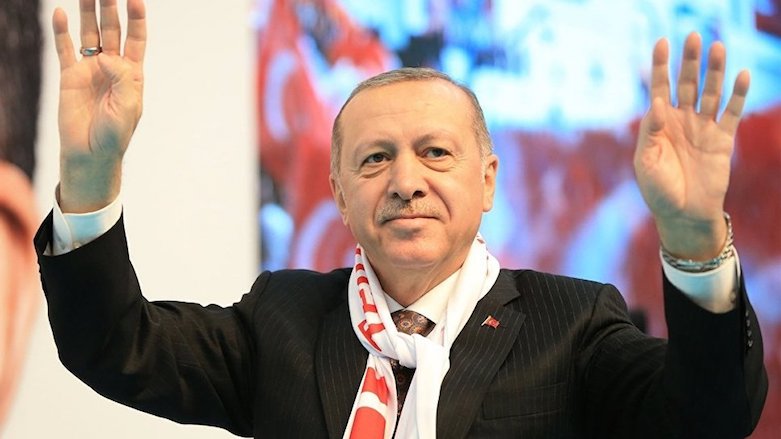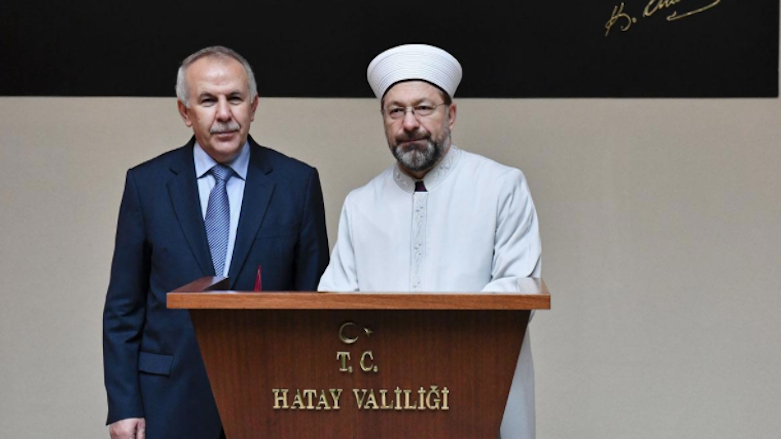In Diyarbakir, Erdogan criticizes state of emergency

ERBIL, Kurdistan Region (Kurdistan 24) – Turkey’s President Recep Tayyip Erdogan on Saturday visited the Kurdish cities of Mardin and Diyarbakir where he attended provincial conventions of his ruling Justice and Development Party (AKP).
“During our activities to found the [AKP], and when we came to power, what our friends here demanded from us most was to lift the state of emergency,” Erdogan told a crowd in Diyarbakir, harshly attacking the practice.
Erdogan was referring to the state of emergency that was in place between the years 1987 and 2002 which at times covered over a dozen Kurdish provinces where Turkish government forces were fighting the Kurdistan Workers’ Party (PKK).
His first government ended it.
However, Turkey is now under a nationwide state of emergency extended six times since the mid-2016 failed coup attempt to overthrow Erdogan’s rule.
“The state of emergency back then was like a sword over the head of all citizens. Don’t you ever compare that of then with the one today! Today, not even five percent [of powers] are used,” he said.
Under the current state of emergency, the President, empowered by a constitutional reform package narrowly approved by voters in a referendum last April, can bypass the Parliament in enacting new decrees.

Since the botched coup, the decrees have purged over 100,000 civil servants and ordered the closure of hundreds of media outlets, NGOs, cultural centers, private schools, and hospitals over allegations of having ties to “terrorist” groups detrimental to national security.
There are also over 160 journalists, and media workers behind bars as former co-leader of the HDP Selahattin Demirtas remains jailed along with eight lawmakers, 63 mayors, and 50,000 other political detainees.
The Council of Europe (CoE), and international rights groups such as Human Rights Watch have previously called on Ankara to end the state of emergency, citing grave rights violations, including allegations of torture in prisons and abuses of state power by officials.
The media is not allowed to air any military information not approved by the government regarding the Turkish army’s ongoing invasion of the besieged Afrin enclave in Syrian Kurdistan.
In January, when Ankara launched the assault on Afrin, Prime Minister Binali Yildirim convened with media bosses and editors and gave them 15 directives to follow, barring them from any mention of civilian casualties and citing international news agencies among others.
In Diyarbakir, Erdogan promised a “conquest,” using a religious term during his televised address.
“We know who is behind these terrorists. The plot is revealed,” he said, words apparently directed at the United States and other Western countries supporting the Kurdish People’s Protection Units (YPG) in the fight against the Islamic State (IS) in Syria.
The US and the anti-IS Coalition it leads, however, do not back the YPG in Afrin where it is fighting off the Turkish advance.
“As of now, 3,569 terrorists have been neutralized. Glad tidings of the conquest are here. This army molded in Islam did the job in Afrin. Inshallah [God willing]. It can happen anytime, anytime,” Erdogan said.
Editing by Karzan Sulaivany

